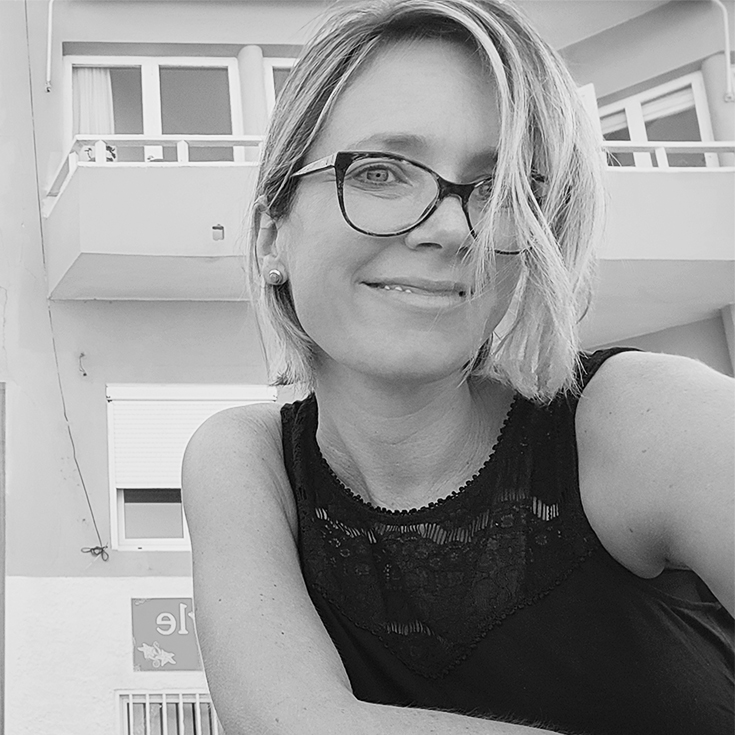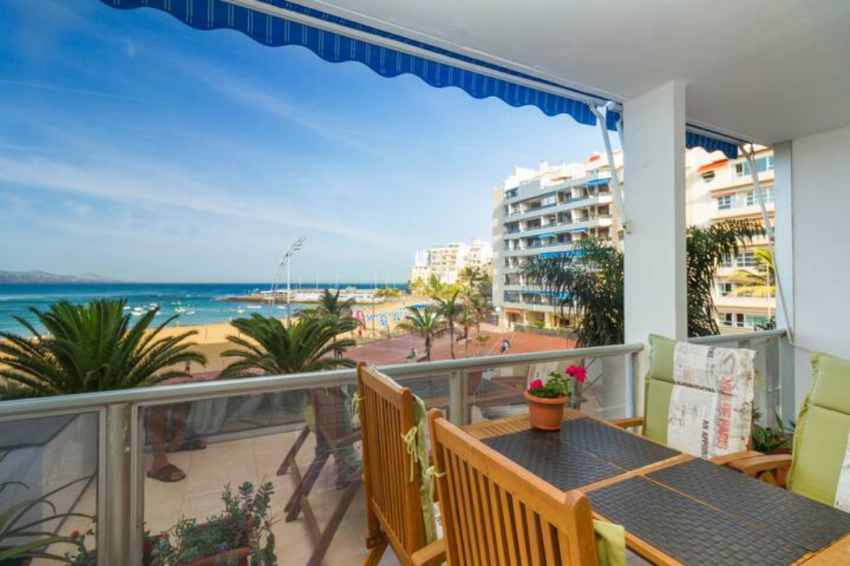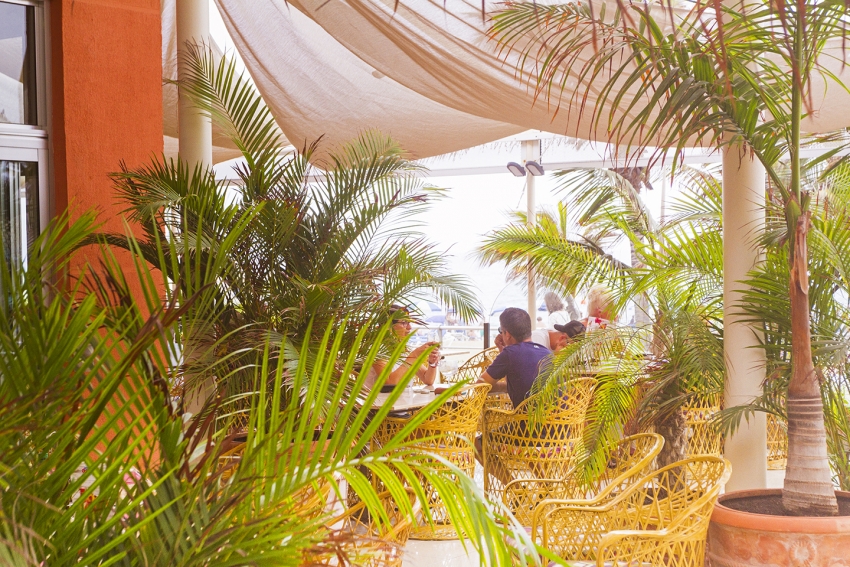Living In Gran Canaria: Getting A Mortgage
 Getting a mortgage as a Gran Canaria resident is not a complex process but you do need to do a fair amount of paperwork and have a decent amount of cash to cover the deposit and fees.
Getting a mortgage as a Gran Canaria resident is not a complex process but you do need to do a fair amount of paperwork and have a decent amount of cash to cover the deposit and fees.
Article by Las Palmas estate agent Laura Leyshon.
Getting a Gran Canaria mortgage
To get a mortgage you must have a 10-20% cash deposit (plus the 10% in cash that it costs to buy a property in Gran Canaria) and prove to the bank that you can make the repayments. In general, they only lend if your liabilities (existing loans, mortgage payments) represent less than 35% of your monthly income.
For example, if you want to take out a mortgage which will be 350 euros a month, you must earn 1000 euros a month and not have any other loan payments. They will check your ability to pay by requesting the following documentation…
- Wage slips from the last 3 months
- Bank statements for the last 6 months
- If you are self-employed, copies of your last 3 years of accounts (with an auditor’s stamp) and copies of you last 12 month’s business bank statements and your last 6 months personal bank statements).
As always, you will need to feed the photocopier with your ID, residencia and the one piece of paper you didn’t bring with you.
Banks in Gran Canaria do NOT take future rental income into account when calculating the amount of money they will lend you to buy a property.
Spanish banks currently offer mortgages of 60-80% of what a property valuation firm says that it is worth (you pay about 300 euros for this valuation as part of the mortgage application process).
Most banks offer variable rate mortgages that last from between 12 and 40 years. Fixed rate mortgages have been at histrically low rates for several years but have risen in 2022.
Gran Canaria mortgage interest rates
Interest rates in Spain vary, but are generally a little lower than in the UK. The rate is set using the EURIBOR interest rate published by the European Money Market Institute.
Your mortgage rate will be expressed as EURIBOR plus a percentage (eg. Euribor más 0.75%) and varies depending on whether the EURIBOR rises or falls. With the rate currently negative, mortgages in Spain are at rock bottom levels.
It is always worth applying to several banks (you only have to gather the paperwork once) as the rate, property valuation, and other conditions vary considerably between banks and you never quite know what headquarters in Madrid (all applications are sent to Madrid for approval) will say.
There is no harm in playing the banks off against each other.
Ask for a copy of one bank’s offer and then take it to a different bank to see if they can improve the offer – they often will. Then take the improved offer back to the original bank – you may get a pleasant surprise.
Gran Canaria mortgage costs
During the mortgage application process, you have to pay for a valuation by a professional valuation firm (200-300 euros) and you will also pay a gestoria (bureaucracy consultant/paperwork company) to handle all the paperwork (around 250 euros); your bank will assign one, you’ll pay for it.
Spanish banks have a habit of attaching other products to their mortgages to boost their profits. For example, you will have to pay for annual life insurance that covers the entire mortgage, and property insurance that covers its replacement value in the case of a fire, etc. Often you get the best interest rates if you agree to their add-ons.
Non-resident mortgages in Gran Canaria
Non-residents need a minimum deposit of 30% plus the 10% in fees and taxes that you need to buy a property. That’s a minimum of 40% of the value of a property befoe you can get a mortgage as a non-resident.
You may also be asked to provide an aval (guarantor). This will be somebody usually based in Spain who agrees to pay in the event of you being unable to.
Save money on transfers by using a currency broker like Currencies Direct if you are from a non-Euro country. They are far better value for money thank banks.
New build mortgages in Gran Canaria
As well as paying slightly more IPT tax (7% rather than 6.5%), buying a new build property has the disadvantage that the constructor (builder) or promotor (promoter) often has a mortgage deal agreed with a particular bank. The rates and conditions are fixed and you have to accept them.
Changing mortgages in Gran Canaria
With rates as low as they are at the moment, there is rarely much benefit to changing your mortgage provider as the process is long and expensive (fees are around €3000). However, if you are locked into a mortgage with high rates, it is worth looking into.
The Clausula Suelo
Spanish banks used to put a floor under the interest rate on their mortgages which basically locked in their profits if interest rates dropped. However, the EU has ruled this floor, known as the clausula suelo, illegal and told the banks to scrap it and TO RETURN ALL THE EXTRA, ILLEGAL INTEREST THEY COLLECTED.
If you have a mortgage in Spain with a clausula suelo, you are entitled to go to your bank and demand that they return all the excess interest you paid over the years.
These sums can be substantial so don’t expect your bank to hand it over without a scrap; They aren’t exactly falling all over each other to obey the courts.
Rather than give you the cash, the bank knocks what they owe you off the outstanding mortgage debt.
For the latest on this story, please read this article.
The best Gran Canaria mortgage banks
Mortgage offers change all the time so we recommend that you shop around extensively and apply at several different types of bank…
The traditional Spanish banks such as BBVA and Santander
The local banks such as Bankia and / or a Spanish caja (equivalent to a building society and just as endangered).
A foreign bank such as Bankinter and Deutsche Bank
An alternative bank such as EVO.
Online banks such as ING Direct.
Specialist mortgage brokers that work with estate agents rather than retail banks.
Help getting a Gran Canaria mortgage
If you speak fluent Spanish and know the local property market, feel free to ignore this advice and use a local mortgage broker or go direct to the banks.
Use a good local estate agent when you buy a Gran Canaria property: They will help you with the process of getting a Gran Canaria mortgage and make sure that you pay a fair price for your property.
Best of all, estate agency services are free for the buyer as the seller pays all their fees.
In Las Palmas and north Gran Canaria, talk to me at Las Palmas Property.
In south Gran Canaria, just go to Cárdenas Real Estate.
Gran Canaria Property: Invaluable Las Palmas Property Tips
 We've asked Laura Leyshon, our favourite Las Palmas estate agent, to put together this set of useful tips about buying a property in Las Palmas.
We've asked Laura Leyshon, our favourite Las Palmas estate agent, to put together this set of useful tips about buying a property in Las Palmas.
Written by Laura Leyshon, resident estate agent and Las Palmas property expert.
Get a current nota simple before you buy a Las Palmas property
The Gran Canaria property registry is excellent and keeps detailed information about every registered property on the island. You can access this information by going to the registry and asking for a nota informative or nota simple for any property on the island. All you need is the exact address.
A nota informativa contains a detailed description of the property as it was registered, information about the legal owners, any mortgage on the property and any unpaid taxes or fines.
It is vital that you see an up-to-date nota informativa and compare the information it contains with the property you're considering. Any discrepancies must be explained fully by the owner.
The best time to ask for a nota informative is just before you put down a deposit and sign a pre-contract (known as an arras contract) because then you know that you have seen the most up-to-date version.
You need to see an updated one before you pay for your Las Palmas property.
See the area at different times
As with all urban areas, the zone around your Las Palmas property is important and I advise you to visit it several times ar different times of the day and night to make sure that you know what to expect. For example, some streets are quiet during the day but lively at night, while others don't get much sunshine due to taller buildings around them.
If you can't visit the area more than once, ask on forums, or just ask your Las Palmas estate agent for an honest opinion.
Which way is it facing?
Everyone who buys a property in Las Palmas wants lots of natural light and sunshine, but you can have too much of a good thing. For example, south-facing properties with large windows can heat up during the summer and you may need to factor in the extra cost of air conditioning. Conversely, shaded or north-facing buildings can be cold in the winter (Las Palmas properties don't have cavity insulation). This may seem like a minor point, but it's worth knowing exactly what to expect before you buy.
Check urban plans for the zone
If your Las Palmas property has a view, or you think there may be plans for the local area, you can check this in the ayuntamiento (Town Hall). The urban planning department is open to the public on Tuesdays and you need to speak Spanish to find out anything useful. A chat with planning will tell you if any plots in the area have building projects approved and whether there are any serious projects that may cause noise.
Bilingual representative
Unless you speak (and read) fluent Spanish, it is vital that you have a bilingual representative before you buy a Las Palmas property. If you don't, you could easily miss something in the contract or misunderstand the owner. Also, Spanish notaries have an obligation to make sure that all parties fully understand a contract before they sign. If you don't speak Spanish, then the notary could refuse to let you sign the contract.
Your representative can be a bilingual estate agent, a gestor (a mix between an accountant and an advisor), or a lawyer (you need one familiar with Spanish property law and Canarian tax regulations); Just make sure that whoever you choose is completely transparent with you at all times.
Identity numbers and bank accounts
To buy a property in Gran Canaria, you need to have a local bank account and a NIE (Spanish ID number for foreigners). You can apply for a NIE from your nearest Spanish consulate at home, but it is much quicker to get one in Gran Canaria once you have a pre-contract to buy a property.
All you need to open a non-resident bank account is a passport.
Communidad and derramas
Most apartments buildings in Las Palmas have a community of owners (all residential properties must have one by law if they contain more than 3 separate properties). Each owner pays a monthly fee (called the communidad) for building maintenance and services at a rate determined by the proportion of the building that they own. Community fees vary considerably and can range from €30 to €200 per month.
When the community fee isn't enough top pay for building repairs of maintenance, the community organises a derrama to raise the money. All members of the communidad are obliged to pay their share, although payments are normally staggered over a period of at least a year.
It is always worth asking about the communidad and any derramas before you buy in Las Palmas and especially if you plan to buy an older property; Owners have been known to sell up rather than pay a large derrama. If you have any doubts, ask for the contact details of the president of the community of owners (they are elected by the communidad).
Study home and local mortgage options and apply to several local banks
Non-resident mortgages are available in Las Palmas but can take a while to arrange and you need a larger deposit and higher earnings than a resident buying the same property. I'd advise all buyers who need a mortgage to look into both local and home mortgages, and to apply to several local banks at the same time.
This avoids having all your eggs in one basket and means that you have a better chance of success.
Relax: Some things take time
As a British estate agent in Las Palmas, I strive to get everything done as efficiently and quickly as possible. However, experience has taught me that while everything gets done in the end, some procedures in Las Palmas just take time. For example, mortgage applications, property valuations and even legal paperwork are sometimes delayed, especially around the summer and Christmas holidays.
Because local owners and buyers are used to delays, purchase option contracts often last for three months to make sure that both parties have time to get everything in order. While most purchases happen faster, there is no way of rushing a Spanish bank or a property valuer. Sometimes, as infuriating as it is, you just have to wait.
Use an agency: It's free
It is perfectly possible to buy a property in Las Palmas without using an estate agency provided that you speak Spanish and have detailed knowledge of all the relevant laws. However, because agency commissions are paid by the seller, I advise all buyers to use the services of an estate agent.
Having a local agent in your corner to arrange viewings, advise you on current market prices and make sure that the whole buying process goes without a hitch is invaluable.
Laura Leyshon is Las Palmas' leading British estate agent and works for one the city's oldest and most trusted agencies. She knows the Las Palmas property market inside out and is always happy to answer any questions you have.
Gran Canaria Info recommends:
- Default
- Title
- Date
- Random














